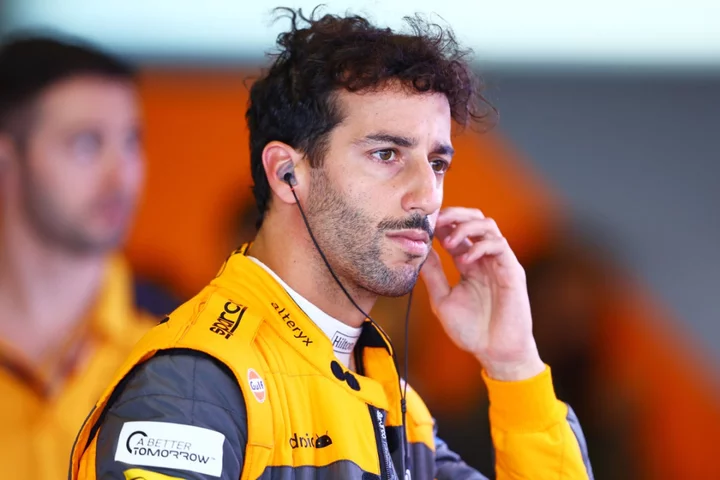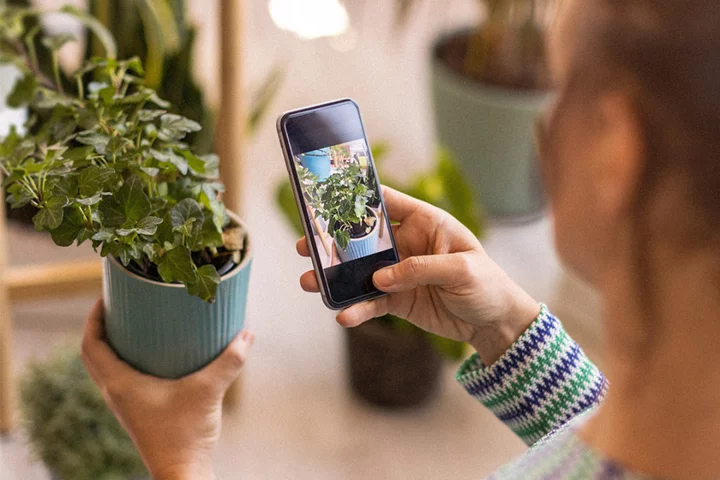
The Aquasonic is now only $26.95 — its lowest price ever
Save $29: As of June 29, the Aquasonic Black Series Ultra-Whitening electric toothbrush now costs
2023-06-29 23:58

15 Incredible Books by Stonewall Book Award Winners
The Stonewall Book Award celebrates LGBTQ+ literature and includes standouts from authors like Alison Bechdel, Rivers Solomon, and Michael Cunningham.
2023-06-14 07:24

Cost of federal census recounts push growing towns to do it themselves
Only a single municipality, the Village of Pingree Grove in Illinois, has signed a contract so far with the U.S. Census Bureau to have the agency conduct a repeat head count following the 2020 census
2023-08-05 12:15

Recent shark bites scary, but serious injuries remain vanishingly rare
Recent shark bites in Florida and Hawaii and a suspected case in New Jersey have piqued interest in the age-old summer question of whether it's safe to go in the water
2023-05-24 01:58

Guenther Steiner to produce new hit ‘workplace comedy’ show
Haas boss Guenther Steiner is in line to be a producer on a new “single-camera workplace comedy” show on US broadcaster CBS. Steiner is a fan favourite among F1 fans, with his X-rated moments on Netflix’s Drive to Survive giving the Italian-American team principal a cult following. Now he will act as a non-writing executive producer for a comedy show in the early stages of development, according to Deadline. The fictional show will be set in sport, with the protagonist set to play a role as a team boss, based on Steiner. CBS is one of America’s biggest broadcast networks and has produced comedy series’ such as The Big Bang Theory and Everybody Loves Raymond. Steiner told The Independent in March that he is “not good at acting”, insisting the perception of him in Drive to Survive is authentic. “I just do my job and if they film it all that’s fine,” he said. “It’s all very transparent. We sometimes make a meal of things but very rarely. It’s real – and we can do that because our owner [Gene Haas] lets us do it. “I think the fact he’s American means he’s more open. I think people like the honesty too.” Steiner’s Haas team are currently bottom of the F1 constructors’ standings with one race to go this weekend in Abu Dhabi. Read More F1 Juniors broadcast an admirable idea – but all kids want to be is grown up Mick Schumacher returns to racing with Alpine in 2024 Lando Norris posts update from hospital after Las Vegas crash
2023-11-22 21:55

SEC Finalizes Settlements on Wall Street WhatsApp Probe: Reuters
The Securities and Exchange Commission is finalizing settlements with about two dozen Wall Street firms to resolve probes
2023-09-28 10:27

How to unblock Disney+ Hotstar for free
SAVE 49%: ExpressVPN is the best service for unblocking streaming sites. A one-year subscription to
2023-09-01 12:51

The surprising mindfulness of 'The Bear'
Every second counts. That mantra appears more than once in Season 2 of The Bear.
2023-07-14 17:46

Twitter / X posts with misinformation are no longer eligible for ad revenue sharing
Twitter / X owner and executioner Elon Musk has announced that the platform is disabling
2023-10-30 15:46

Daniel Ricciardo: I thought I’d never race in F1 again
Daniel Ricciardo has revealed that he thought he’d never race in F1 again and has to remove “all ego and status” this year in order to secure a return to the grid. After 11-and-a-half consecutive seasons with a seat in F1, the likeable Aussie was dropped by McLaren at the end of the last campaign following a disappointing two-year spell and failed to find another team to take him on as one of their two race drivers. At the age of 33, he was forced to swallow his pride and accept a role as reserve driver at Red Bull, doing “everything the drivers are doing… other than the driving”, in pursuit of one of those 20 golden seats on the grid. And last week his chance came as he was chosen to replace the axed Nyck de Vries at AlphaTauri, officially on loan from Red Bull to their sister team for the remainder of the season, meaning he will be in the cockpit at the Hungarian Grand Prix this weekend. It is a lifeline back into F1 and even though he ultimately only missed 10 races, the now-34-year-old admits he thought his career was over. “After Abu Dhabi last year, I wasn’t sure if I’d ever race again,” Ricciardo revealed to The Independent in an exclusive interview. “But coming back this year, I removed all ego and status. “I do think this year will be the best thing that’s ever happened to me and it will boost me now for the rest of my career. It honestly came at the right time… everything happens for a reason.” Ricciardo tried to make the most of his enforced time off, escaping the mental and physical rigours of F1 for a life of attending Super Bowls, PGA Tour golf events and Met Galas in New York. He enjoyed those moments, and loved being able to return to Australia for his birthday earlier this month for the first time in 17 years, but the competitive itch soon returned. “I’ve really enjoyed this time off, to have the time for myself,” he said. “Last week I went home to Australia for my birthday, I haven’t done that since I was 17. “It honestly came at the right time. Look, I wish those two years [at McLaren] were better. But it’s given me a mental break because the competition is intense, as much as we love it. It consumes a lot of you so I feel for me to bring my cortisol levels down a little bit, I just feel a lot more balanced this year. “I didn’t want to see a gym for a while. I just wanted to eat and drink with my mates. Out of principle, I wanted to give myself a break. Just to allow myself to put on a few kgs. It felt really good, I trained just once in December and January. “I got to February and remember thinking ‘yeah, I’m done.’ I’d had enough. I didn’t feel like drinking every weekend and partying all the time. I wasn’t going crazy but I thought ‘this life isn’t for me just yet’. “And then I became very self-motivated. I wanted it to come from me, I didn’t want someone telling me to run. I had this urge and desire to be back on the grid – and I’ve never enjoyed training so much. I’ve got more energy to train and the desire has increased, especially not being jet-lagged every fricking week!” After an impressive Silverstone tyre test at the British Grand Prix in F1’s fastest car, Red Bull chiefs Helmut Marko and Christian Horner swiftly made the call to get Ricciardo in the AlphaTauri. And the potential carrot is even greater than a permanent seat at one of the grid’s backmarkers. It’s an open secret that Horner is becoming increasingly frustrated with Sergio Perez, as the Mexican’s increasingly poor performances aren’t giving Red Bull teammate Max Verstappen the support he needs on his unstoppable march to the title. The second driver slot at Red Bull could well open up as soon as the end of this season and, with impressive performances at their sister team, Ricciardo could put himself in position to be sharing a garage with Verstappen. He admits that the ultimate ambition – race wins, maybe even a world championship – is still at the forefront of his mind. “That is the reason I would come back,” added Ricciardo. “I still believe I can do it. I feel like the Red Bull Daniel. He is still here.” Read More Daniel Ricciardo on his F1 comeback, the moment he decided to race again and how he wants his career to end Red Bull has handed Daniel Ricciardo the first step to Sergio Perez’s seat Daniel Ricciardo returns to F1 as he replaces Nyck de Vries
2023-07-18 23:59

Lyft Will Discontinue Pooled Rides
Lyft Inc. is officially discontinuing shared rides, the latest change the ride-hailing company’s new chief executive officer is
2023-05-12 02:19

Who owns Wig Fairy? Thousands of dollars worth of goods stolen from Beverly Hills shop that serves cancer patients
Three thieves stole tens of thousands of dollars worth of wigs from a reputable wig store serving cancer patients in the Los Angeles area
2023-08-23 21:19
You Might Like...

Foundry Acquires Blu Atlas, its 3rd Men’s Personal Care Acquisition

Vush’s 14-Day Masturbation Challenge Is Back & Saved My Fledgling Libido

Save 25% on this premium encrypted email and VPN bundle

Welch's® Fruit Snacks Releases New Storybook: Sometimes It's Not Stealing

Pay only $15 for lifetime access to this AI gardening app

'Debris' found in search for missing Titanic sub

Kourtney Kardashian announces imminent arrival of her new collection with Boohoo

Who owns MrBeast Burger? YouTuber sues food company for damaging his brand
